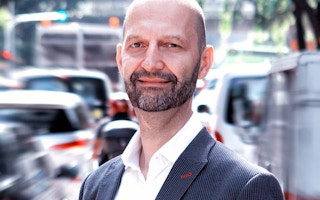Advertising executive Konstantin Popović has launched a sustainability consultancy in Singapore.
To continue reading, subscribe to Eco‑Business.
There's something for everyone. We offer a range of subscription plans.
- Access our stories and receive our Insights Weekly newsletter with the free EB Member plan.
- Unlock unlimited access to our content and archive with EB Circle.
- Publish your content with EB Premium.
Named Impact3P, the firm offers consulting services including carbon accounting, sustainable finance, environment, social and governance (ESG) reporting, waste auditing and climate anxiety coaching.
The launch marks a big career pivot for the Serbian-born executive, who has worked in the advertising industry for 30 years. Agencies he has worked for include BBDO in Germany and New York, Publicis in New York, and most recently Grey Singapore, where he worked since 2015, latterly as chief executive.
At Grey Singapore, Popović launched Sustainably Grey, a unit of the agency that worked with governments, civic society groups and corporations to drive climate change awareness and action, create internal movements and launch new sustainable brands.
In recent years, climate has become a mainstream business for consultancies. Firms adopting sustainability goals have prompted large consulting firms to set up separate verticals for their practice; more specialised firms are also being set up.
For Popović, the main motivation for a career switch was to drive change beyond increasing sales for brands. “I simply want to create more impact beyond corporate profits,” he said.
Popović added that in order for the business world to become part of the climate movement, it is essential for business leaders to be shown how they can align impact on people, planet and profit – hence the three Ps in the name of his consultancy.
“Waste, for example, is largely an inefficiency and by reducing waste, organisations can save costs while also contributing to more than one Sustainable Development Goal. My main entry point is not reporting, i.e. what must we disclose, but rather impact, as in what SDGs are we best suited to contribute to, while also furthering our business goals,” he told Eco-Business.





















